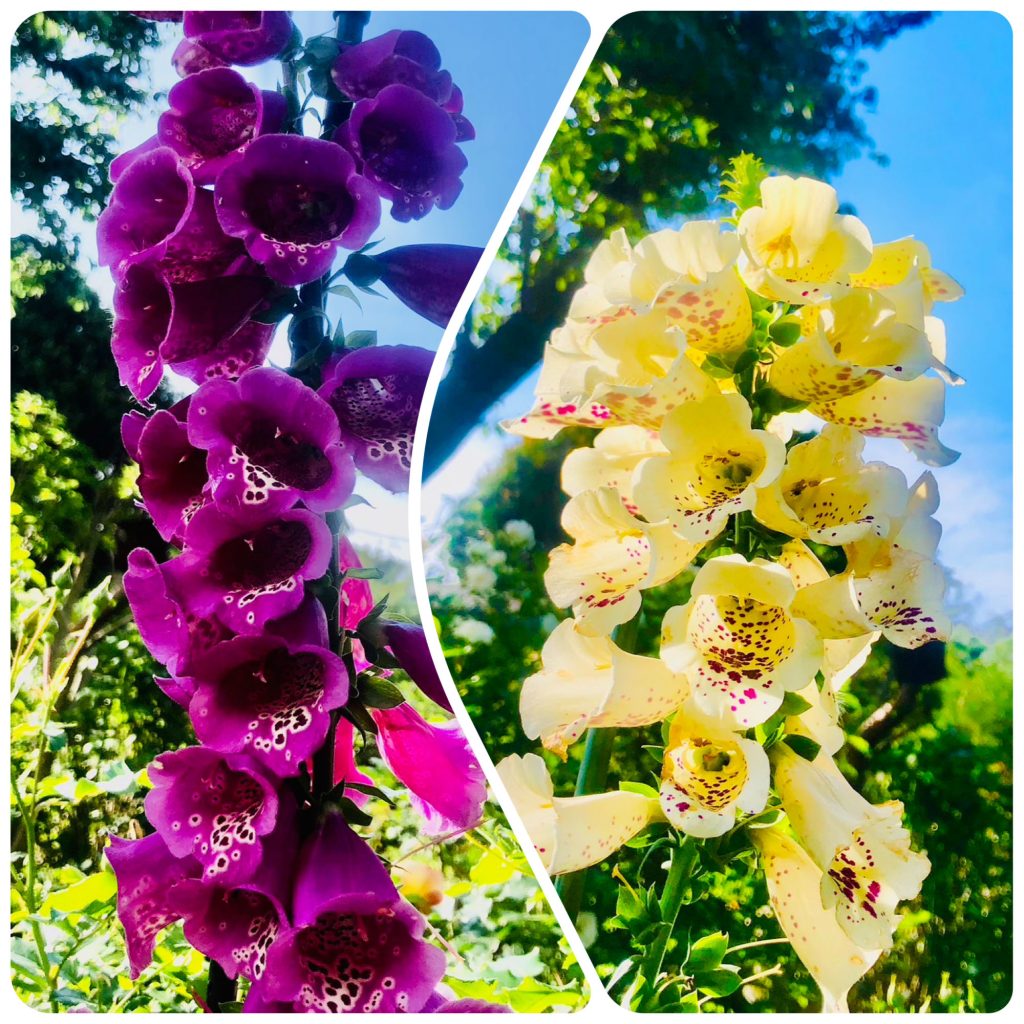
While it is not well-known in Japan, the foxglove has been a familiar plant in Europe for a long time. In Europe, it is often found blooming in the wild around lakeshores. Its bell-shaped flowers cluster together gracefully, nodding elegantly in the breeze, earning it the name ‘King’s-elwand’ for its regal appearance. This plant has not only been a popular subject in poetry but also featured in family crests. The Japanese name ‘Kitsune no Tebukuro’ translates to ‘fox’s glove,’ derived from its English name, ‘foxglove.’ Foxgloves bloom at the same time as roses, making them popular companion flowers for rose arrangements. However, despite their beauty, foxgloves are dangerous plants that can cause gastrointestinal disturbances, vomiting, diarrhea, arrhythmia, headaches, and dizziness if ingested. In severe cases, they can lead to heart failure and death. At the same time, foxgloves have been used as a treatment for acute and chronic heart failure from the late 18th century until recently. Most articles about foxgloves highlight their toxicity and their use in heart failure medications. Additionally, foxgloves are planted in the botanical gardens of pharmacy-related universities across the country.
日本での知名度は低い花ですが、ヨーロッパでは昔から身近な植物として親しまれてきました。ヨーロッパでは湖畔などに野生のジギタリスがたくさん咲いていることもしばしば。鐘状の花が総状に連なり、そよ風に優雅に頭をふる様子は気品があり、King’s-elwand(王杖)と称されるほどで、多くの詩歌の題材になることに加え、家紋にあしらわれるほど親しまれています。和名では「狐の手袋」とも呼ばれますが、これは英名のfoxgloveを翻訳したものです。ジギタリスはバラと同じ時期に楽しめることからバラの添え花としても人気があります。そんなジギタリスですが、誤食すると胃腸障害、おう吐、下痢、不整脈、頭痛、めまいなどを引き起こし、さらに重症化すると心臓機能が停止して死亡してしまうこともある危険な植物でもあります。と同時に、ジギタリスは急性、慢性心不全患者の治療薬として、18世紀後半から最近まで使用されてきました。ジギタリスを検索すると、ほとんどがこの危険性と心不全に使用されてきた治療薬に関しての記事です。また全国の薬学系の大学農園にはジギタリスが植えられています。
